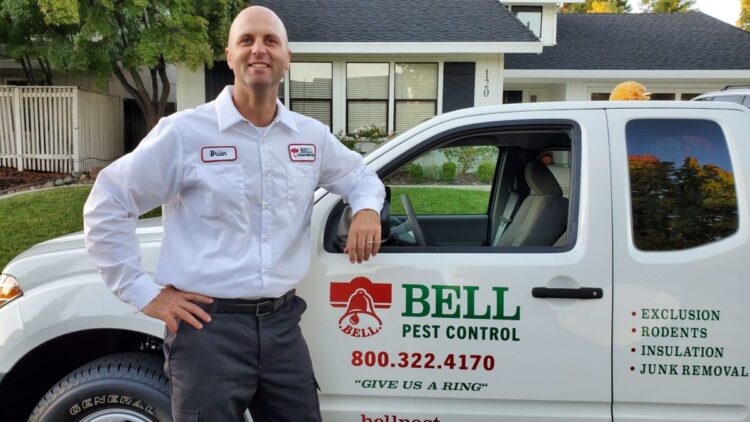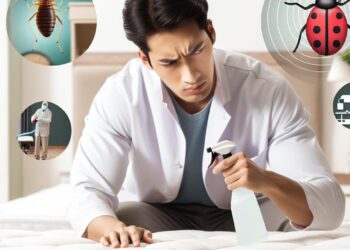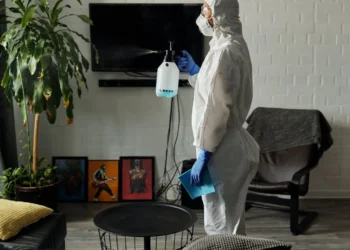Pest control is a crucial aspect of maintaining public health and safety. Pests like rats, cockroaches, and mosquitoes can carry diseases and cause significant property damage. To combat these pests, the pest control industry is essential, and pest control technicians are the frontline workers who keep us safe.
Professional training for pest control technicians is critical for ensuring that they can handle any pest control situation with competence and confidence. This article will explore the importance of professional training for pest control technicians and how it benefits the industry and the public.
Training and certification
The pest control industry is highly regulated, and pest control technicians are required to undergo extensive training before they can be certified to work. Professional training ensures that technicians understand the pests they are dealing with, the chemicals they are using, and the safety protocols they must follow.
Training also covers the proper use of equipment and protective gear, which is essential to prevent accidents and protect both the technician and the public from harm. Technicians must pass a certification exam before they can work in the field, ensuring that they have the knowledge and skills required to perform their jobs safely and effectively.

Ensuring safety
The safety of both the technician and the public is paramount in the pest control industry. Professional training equips technicians with the knowledge and skills required to handle hazardous chemicals safely and use protective equipment correctly.
In addition, training ensures that technicians are aware of the environmental impact of their work and take steps to minimize any negative effects. Technicians learn how to use Integrated Pest Management (IPM) techniques, which prioritize non-chemical solutions and use pesticides as a last resort. IPM techniques are more environmentally friendly and help reduce the use of harmful chemicals in pest control.
Effective pest control
Professional training is also crucial for effective pest control. Pest control technicians must understand the behavior and biology of pests to control them effectively. Training covers pest identification, behavior, and control methods, allowing technicians to devise a customized pest control plan that addresses the specific needs of each client.
Training also covers the use of pest control products and how to apply them correctly to achieve maximum efficacy. Technicians must be able to identify the most appropriate chemical and application method for each pest and ensure that the product is used in a safe and responsible manner.
Professional image
The pest control industry is highly competitive, and maintaining a professional image is essential for success. Professional training is an essential aspect of projecting a professional image to clients and the public.
Certification demonstrates that technicians are knowledgeable, skilled, and committed to their profession. Clients are more likely to trust certified technicians and are more likely to recommend them to others. A professional image is essential for building a strong client base and maintaining a positive reputation in the industry.

Continuing education
Professional training is not a one-time event. The pest control industry is constantly evolving, and new pests and control methods are emerging all the time. Continuing education is crucial for pest control technicians to stay up to date with the latest industry trends and techniques.
Training is also critical for ensuring the safety of both the technician and the public, minimizing the environmental impact of pest control, and projecting a professional image to clients and the public. Continuing education is essential for staying up to date with the latest industry trends and techniques and maintaining certification.
The pest control industry is a vital aspect of public health and safety, and professional training is crucial for maintaining high standards of service and ensuring that pests are controlled safely and effectively. Without professional training, pest control technicians may not have the necessary knowledge and skills to handle different pest control situations, which could lead to ineffective pest control, environmental damage, and even harm to human health.
Moreover, the lack of professional training could lead to technicians using harmful chemicals inappropriately or without taking adequate safety measures. This could result in long-term negative impacts on the environment and the health of the public, which would further damage the reputation of the pest control industry.
In addition, the pest control industry is becoming increasingly competitive, and clients are more likely to choose certified technicians who have undergone professional training. Certification demonstrates that technicians have met industry standards and possess the necessary knowledge and skills to provide effective pest control services.

Furthermore, professional training allows pest control technicians to offer a range of services, including pest identification, treatment, and prevention. Clients can rely on certified technicians to identify and treat various types of pests safely and efficiently, reducing the need for multiple service providers.
Continuing education is also essential for pest control technicians to stay up to date with the latest trends and developments in the industry. New pests and control methods are emerging all the time, and technicians must stay informed to provide the best possible service to their clients.
Professional training also helps technicians to keep up with changes in regulations and safety standards. The pest control industry is highly regulated, and it is important for technicians to comply with all safety and environmental regulations. Professional training ensures that technicians are up to date with any changes in regulations, protecting both the technician and the public.
Professional training for pest control technicians is vital for the industry and the public. Certification ensures that technicians have the necessary knowledge and skills to perform their jobs safely and effectively. It also promotes a professional image for the industry and enhances the reputation of certified technicians.
Continuing education is also essential for technicians to stay up to date with the latest industry trends and techniques, allowing them to offer a wide range of services to clients. It is crucial for the pest control industry to maintain high standards of service and ensure that pests are controlled safely and effectively. Professional training is the cornerstone of achieving this goal.
Conclusion
Continuing education allows technicians to expand their knowledge and skills and stay at the forefront of their profession. It also demonstrates a commitment to excellence and a willingness to learn and grow. Continuing education is a requirement for maintaining certification, ensuring that technicians stay current with industry standards and best practices.














